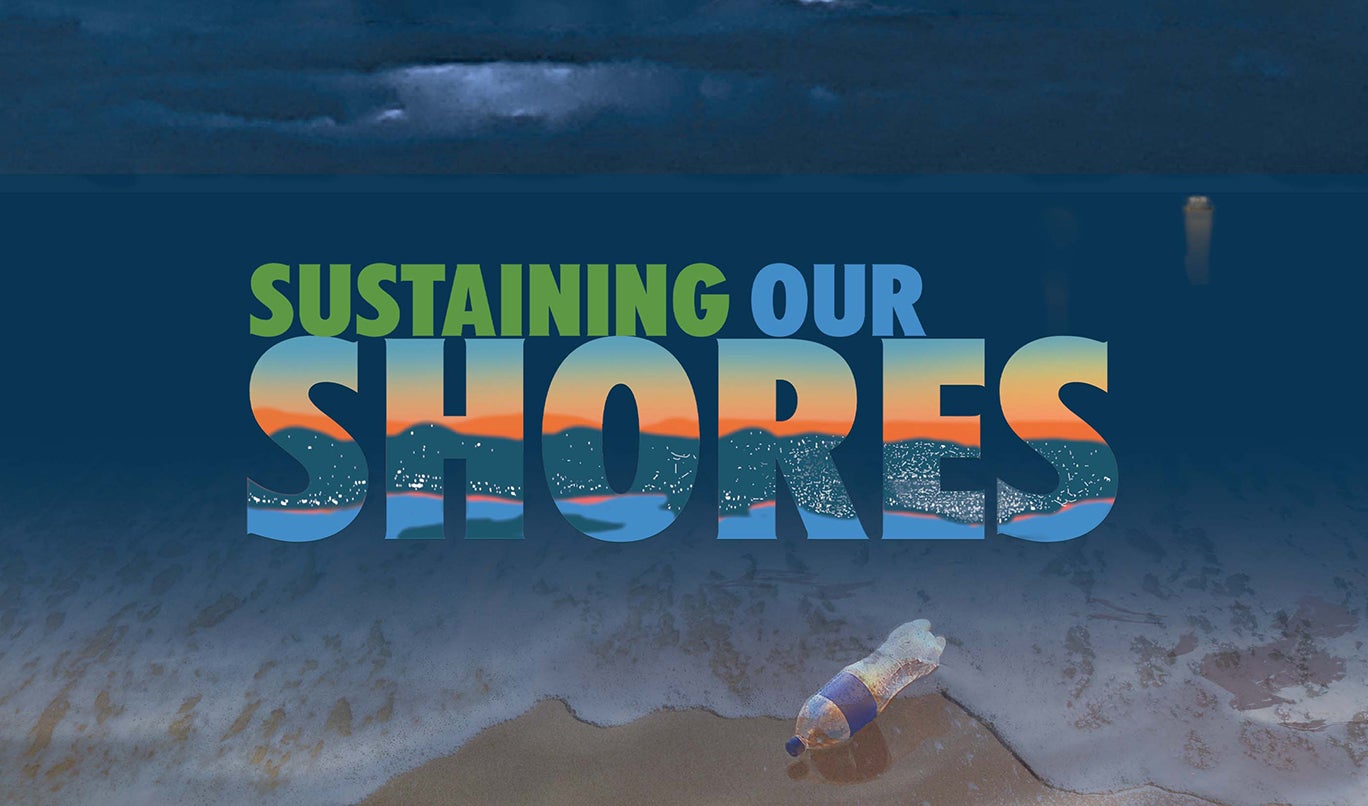KINGSTON, R.I. — Nov. 24, 2021 — The University of Rhode Island’s fall Honors Colloquium, “Sustaining our Shores,” will continue Tuesday, Nov. 30, with a panel discussion on “Plastic and Marine Pollution–Science and Solution.”
The free public lecture will be held in Edwards Hall at 7 p.m. and can also be viewed online by going to the colloquium schedule and clicking on the Nov. 30 entry. Due to the COVID-19 crisis, all attendees will be REQUIRED to show either a vaccination card OR a university ID. Also, everyone attending will be required to be masked while inside the building. Virtual viewing is open to all.
The panelists are:
- Kara Lavender Law, a research professor of oceanography at Sea Education Association (SEA, Woods Hole, Massachusetts), studying the sources, distribution, transformation and fate of plastic debris in the ocean. Trained as a physical oceanographer, Law has more than 12 months of sea time on oceanographic and sailing research vessels, including in the eastern North Pacific and western North Atlantic oceans where plastic debris accumulates in regions dubbed “garbage patches.” Law’s research interests are the sources of plastic to the marine environment, understanding how ocean physics determines the distribution of plastic and other marine debris, and the degradation and ultimate fate of different plastic materials in the ocean. She serves on the U.S. National Academies Committee on U.S. Contributions to Global Ocean Plastic Waste, is vice chair of the Scientific Committee on Oceanic Research, Working Group FLOTSAM (Floating Litter and its Oceanic TranSport Analysis and Modelling), and served as the co-principal investigator of the Marine Debris Working Group at the National Center for Ecological Analysis and Synthesis. Law holds a Ph.D. in physical oceanography from Scripps Institution of Oceanography and a bachelor of science degree in mathematics from Duke University.
- Evan Ridley, director of Environmental Programs at the Rhode Island Marine Trades Association. His worked has focused on the development and growth of several sustainability initiatives in the recreational boating industry. This includes the reintroduction of the Rhode Island Clean Marina certificate and the creation and launch of the Rhode Island Fiberglass Vessel Recycling Pilot Project, an effort to establish alternatives to landfill disposal of end-of-life fiberglass boats and their materials. His research on this topic is distributed within a growing network of international stakeholders and collaborators. In 2020, he was included in Boating Industry’s “40 Under 40.” Ridley received his bachelor’s and master’s degrees in Marine Affairs from the University of Rhode Island. Interests in plastic pollution: composite materials, recycling supply-chain development, recycling technologies, marine debris prevention, end-user education, policy and legislation, community recycling, etc. He is a member of the American Composite Manufacturers Association Council on Sustainability, Contributor to the 6th International Conference on Marine Debris, Chair of the Newport Energy & Environment Council.
- Anna Robuck, an environmental chemist and oceanographer studying chemical and plastic pollution in natural and human environments. She seeks to measure plastic and plastic-derived chemicals in a range of human tissues using advanced mass spectrometry tools, as a research fellow in the High Resolution Exposomics Group at the Icahn School of Medicine at Mt. Sinai. She earned a Ph.D. in oceanography in 2020 from the University of Rhode Island Graduate School of Oceanography, during which she orchestrated a large-scale necropsy and analysis program to assess the occurrence of ingested micro- and meso plastics in Massachusetts Bay seabirds over time. Her dissertation was supported by the highly selective National Oceanic and Atmospheric Administration Dr. Nancy Foster Scholarship, the ORISE Research Fellowship within the U.S. Department of Environmental Management, and a traineeship in the National Institute of Environmental Health Sciences Superfund Research Program. Robuck also holds a bachelor of science degree in marine biology and chemistry, and a master of science degree in marine science and geography, both from the University of North Carolina Wilmington.
- Eva Touhey works as the program manager at Clean Ocean Access, an environmental nonprofit in Middletown, R.I. Eva attended Hobart and William Smith Colleges for her undergraduate studies, where she double majored in biology and music. She received her master of arts degree in Marine Affairs at the University of Rhode Island studying the influence of plastic bag bans on pro-environmental behaviors in Rhode Island Coastal Communities. Touhey has worked at Clean Ocean Access since 2015, beginning as an intern, moving to part-time and then becoming the full-time program manager upon completing her master’s degree in May 2019. Her responsibilities include overseeing the founding programs about eliminating marine debris, improving water quality and protecting public shoreline access, the Healthy Soils Healthy Seas RI composting initiative, and the organization’s education and outreach.
- Moderator–Peter Snyder, the vice president for Research & Economic Development at URI, where he is also a professor of biomedical and pharmaceutical sciences in the College of Pharmacy. Snyder oversees the research mission of the University, and he simultaneously maintains a robust research program centered on biomarkers development for detection of high risk for Alzheimer’s disease in pre-symptomatic individuals. Snyder is the senior associate editor of Alzheimer’s & Dementia: The Journal of the Alzheimer’s Association, and he is the editor-in-chief for Alzheimer’s & Dementia: Diagnosis, Assessment & Disease Monitoring (an open access journal of the Alzheimer’s Association). Snyder publishes regularly within his field, and he has delivered over 250 presentations at international scientific conferences. Over the past two years, Snyder has spearheaded the establishment of URI’s first university-wide “signature research initiative,” branded as a co-Laboratory (COLAB) or laboratory without walls. The Plastics: Land to Sea COLAB now involves the efforts of nearly 50 faculty across six of URI’s colleges, with approximately $8 million in external funding, and this effort is central to URI’s recent submission for an Established Program to Stimulate Competitive Research (EPSCoR) Track I award.

